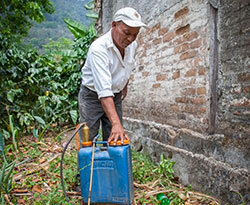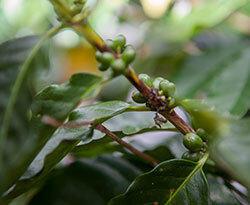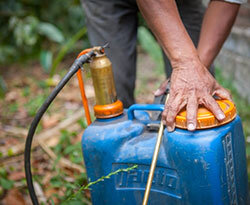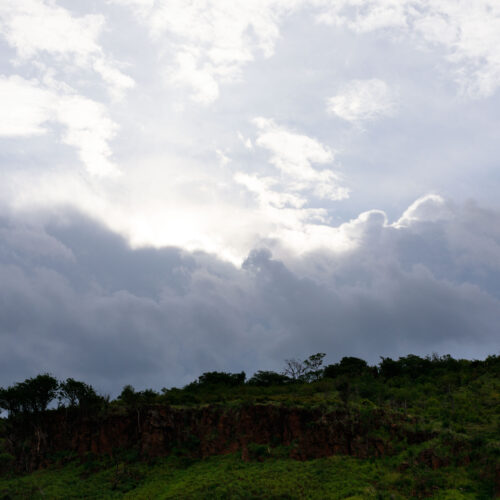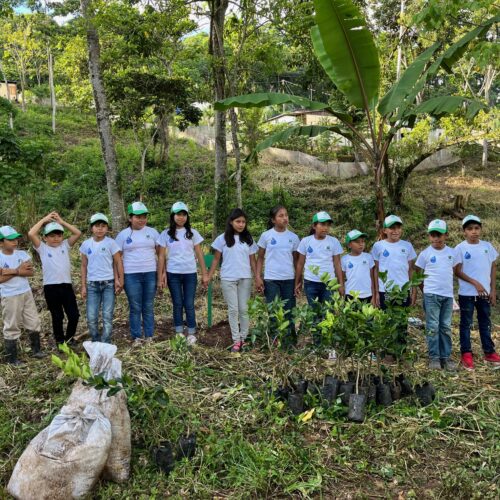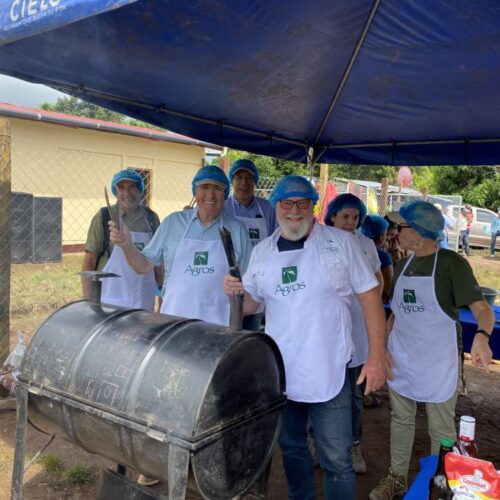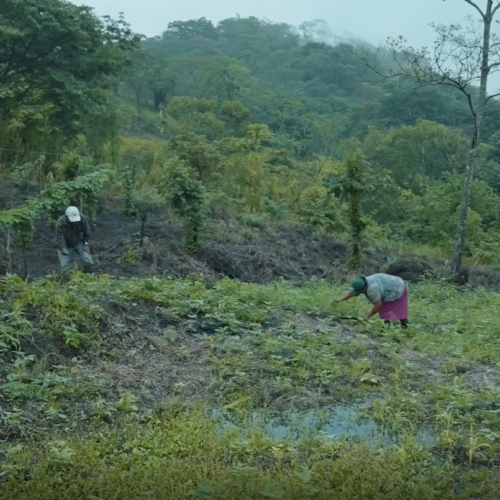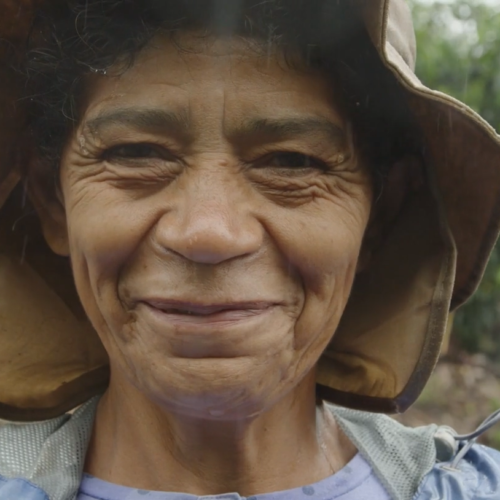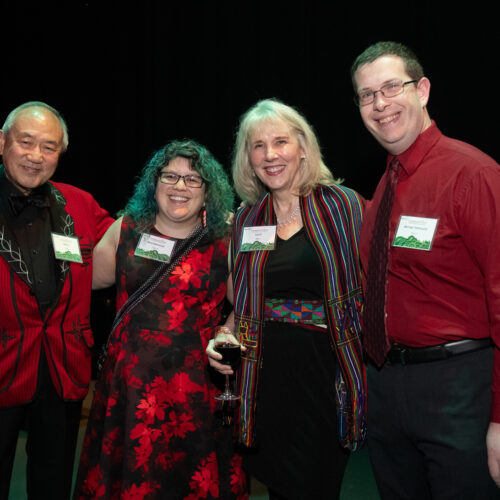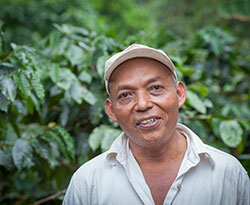

AT 47 YEARS OLD WHEN HE FIRST JOINED AGROS’ NUEVA ESPERANZA (NEW HOPE) VILLAGE IN NORTHERN NICARAGUA, PASCUEL PEREZ HERNANDEZ (NOW 52) WAS ONE OF THE OLDEST PARTNERS. BUT, HE DIDN’T LET HIS AGE OR HIS LACK OF EXPERIENCE GROWING COFFEE GET IN HIS WAY.
“I came here to learn,” he says. After a lifetime of struggling to survive and feed his family through the production of corn and beans, “renting land from and working for the rich,” Pascuel had managed to have a small plot of land he could call his. Poor health, medical bills and unexpected expenses, however, forced him to sell his cultivatable land. “We were left with just the land where our house was,” he says. “But, eventually we sold it as well,” he remembers.
When the Agros staff invited him to be part of the project, he was hesitant at first. It wasn’t until they asked again and he came and visited the land where the Nueva Esperanza village would be located that he felt the project could indeed bring “new hope,” to his family’s life; as the village’s name suggests.
COFFEE
“We came with the desire to be able to grow coffee,” he remembers. Desires and past failures were all he had at that point. “On a whim, I tried to plant coffee once,” he remembers. “It grew, but I didn’t know what I was doing…. It grew to about this high,” he says, pointing to his waist, gave one small harvest of coffee and then dried up and died. “Where we lived before was hotter than here,” he acknowledges. It wasn’t good coffee-growing land.
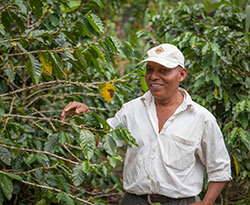

Because the land where Nueva Esperanza was built was a coffee farm before, the first year after Pascuel received his land from Agros he had a bumper-crop of coffee from the existing plants. “We were able to put 50,000 Cordovas (nearly $2,000 (USD)) towards our land,” he remembers, with a smile.
LUCK RUNS OUT
But, his beginners’ luck didn’t last long. The next year, his plants (and most of the plants on the farm) were affected by La Roya (Coffee Rust) epidemic, a fungus that attacks the foliage of the coffee plants, causing the leaves to develop spots, dry up and eventually fall off the tree, leaving slim wooden branches with just the green coffee fruit. Without the foliage, the tree cannot generate enough energy for the coffee fruits to mature. Eventually, most of the coffee fruits dry up as well, leaving the farmer with very little product to harvest.
“The disease was a big blow to us,” remembers Pascuel. “It attacked the plants and left the branches clean,” with no leaves and very little coffee.
To help partners like Pascuel, Agros’ agricultural technicians have been teaching the farmers how they can protect their existing plants from the disease in future year as well as helping them diversify the types of coffee plants they have, planting one that is more resistant to La Roya and other diseases.
THE CHANGEOVER
Changing over more than 340 acres of coffee plants from one species to another, however, takes time. Agros’ partners can’t afford to replace all their plants at once. Not only would that imply a large up-front investment, it also takes coffee plants at least three years to mature and begin to give their first fruits. For this reason, the farmers are learning and changing over sections of their land each year. To date, Pascuel has been able to start 9,000 new coffee plants, which represent his new hope, here in Nueva Esperanza, a task he never would have been able to do on his own.
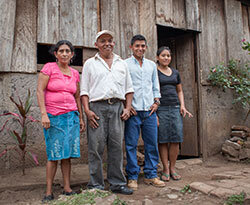
“The technicians walk beside us and teach us as if we were their children,” he says, noting impact of Agros’ agricultural technicians.
Pascuel has re-aligned his hopes and dreams of when he will be able to pay off his land with his current reality, noting that everything they are able to harvest now and for the next few years will need to be used either to have enough food to eat or pay the agricultural credits he needs to switch over his coffee plants.
Nevertheless, he remains optimistic. By his calculations, once his new plants are producing as they should and he is back on track with his payments towards the land, he should have his land plaid off by 2017. “Once I have the land paid for… the victory is mine,” he says, with a smile.
THE NEXT GENERATION
Pascuel works around the clock because he knows he is working against the clock. “My body is deteriorating,” he says. “But, if I die the land will remain for my children… whatever they are able to achieve in the future [with it] will be as if I had achieved it,” he adds.
His age, however, does not stop him from dreaming. He has big plans for his house and his family. “I want my family to live in different conditions… where they are not lacking anything,” he says. But, his aspirations do not stop with having enough to eat. “I also want my house to have a few luxuries,” he adds. “I want to have floor that is not dirt… and glass windows,” he says, shyly. “You have to have dreams,” he concludes, with a smile.
